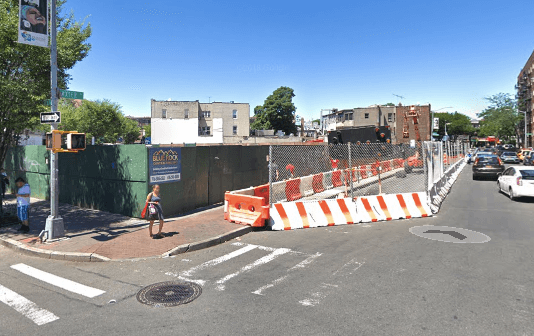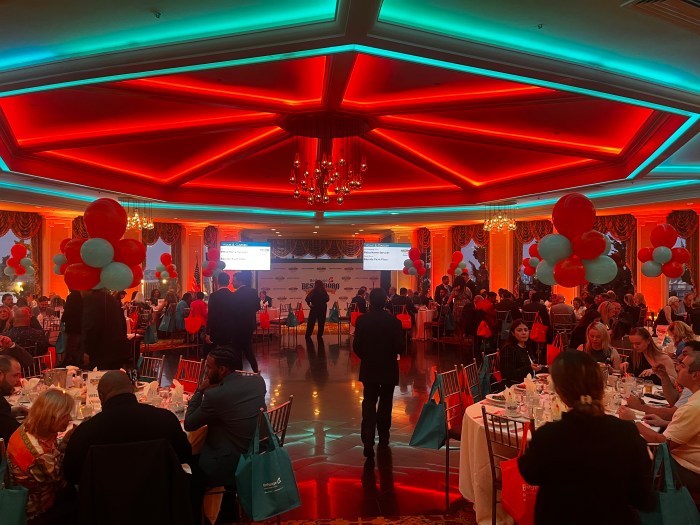The Board of Standards and Appeals delivered a motion in favor of developers seeking to top off a Target at 82nd Street in Elmhurst, a controversial decision that anti-gentrification groups have opposed for over a year.
Moreover, Councilman Francisco Moya issued a statement criticizing the decision.
“While I haven’t been able to personally review the BSA’s decision yet to understand its rationale for permitting the Target project to move forward, I can say that I believe all the residents, activists and elected officials who testified against this project articulated a sound argument,” Moya said. “My interpretation of the zoning regulations remains the same. It’s a mistake allowing organizations to use cellar space as a loophole to skirt zoning rules. Any interpretation of the zoning text that permits this loophole is ignoring the spirit of the regulation. As the chair of the Subcommittee on Zoning and Franchises, I’ll be looking into updating the zoning text to protect against this loophole.”
Queens Neighborhoods United, which took a hardline stance against any variation to the developers plans to build at the site, contested the BSA’s decision as an incorrect interpretation of the zoning law which forbids big-box chains.
The BSA allowed the development at 40-31 82nd St., by Sun Equity and Heskel Group, on the basis that the Target was going below cellar level.
Heskel Elias, the developer of the project, told QNS he believed the activists were uninformed in their opposition and that the community will enjoy the “affordable” shopping experience offered by Target and that the store will hire employees from the local talent pool.
“This development, for three to four years, was an abandoned site. [QNU] was not there when I was pulling out prostitution and drug addicts from that location. That was [the] picture back then. Nobody cared about it then … [when] it was an abandoned movie theater,” Elias said. “I think they were misinformed and they were led by people who don’t really understand business or life.”
Elias added that he bears no anger for the activists and would like to be able to work with them to improve the community.
The lot is zoned under residential/local retail (C1) zoning.
“Today, the Board of Standards and Appeals (BSA) got it wrong,” Paula Segal, an attorney at the Community Development Project, said. “The city cannot allow developers to bury big-box stores underground to skirt the laws and regulations that protect communities in residential zoning districts from unchecked and harmful development; we will petition the court to step in and stop this unlawful development.”
Since before March 2018, local residents have looked at the development as a symbol of gentrification.
The original plan was for a Target on street level and 10 stories of housing. Then the developers sought a ULURP application to allow them to build above the level allowed as-of-right.
And despite deepening the affordability of the inclusive housing in the project, 40 percent of the units, from $60,000 minimum income to around $40,000, opposition remained.
Eventually Sun Equity and Heskel Group withdrew their ULURP application in favor of only building a Target. Fears remained that small, immigrant owned businesses would be hurt.
QNU took its battle against the developers to the state Supreme Court, arguing that it was a zoning violation still, which sent the decision back to the BSA.
The final hearing on the Target proposal came on May 21, when QNU and other activists created a vexation for the BSA who threatened to stop the meeting and have the protestors removed.
QNU said they would appeal the decision with the state Supreme Court, which was backed by State Senator Jessica Ramos.
“This decision sets a dangerous precedent, paving the way for unregulated underground variety stores to be built in residential neighborhoods throughout the city, putting the safety of our communities and infrastructure at risk,” Ramos said on Tuesday. “Space in our growing community is limited. We are in need of dire services and infrastructure that would benefit from the location of this site. The BSA’s decision today is a vote with real estate and a vote against our community. I am joining Queens Neighborhood United in appealing to the New York State Supreme Court, and we will keep fighting to amplify the voices of our neighbors above corporations.”
Some other leaders in Queens who supported the plan were Borough President Melinda Katz, Queens Chamber of Commerce President Tom Grech as well as Urban Upbound founder Bishop Mitchel Taylor.
Editor’s note: An earlier version incorrectly stated that Moya “supported” the Target store’s creation and implied that it was counter to community opposition, both of which were contradictory to his actual statement. We regret the error and any confusion which may have resulted.
































